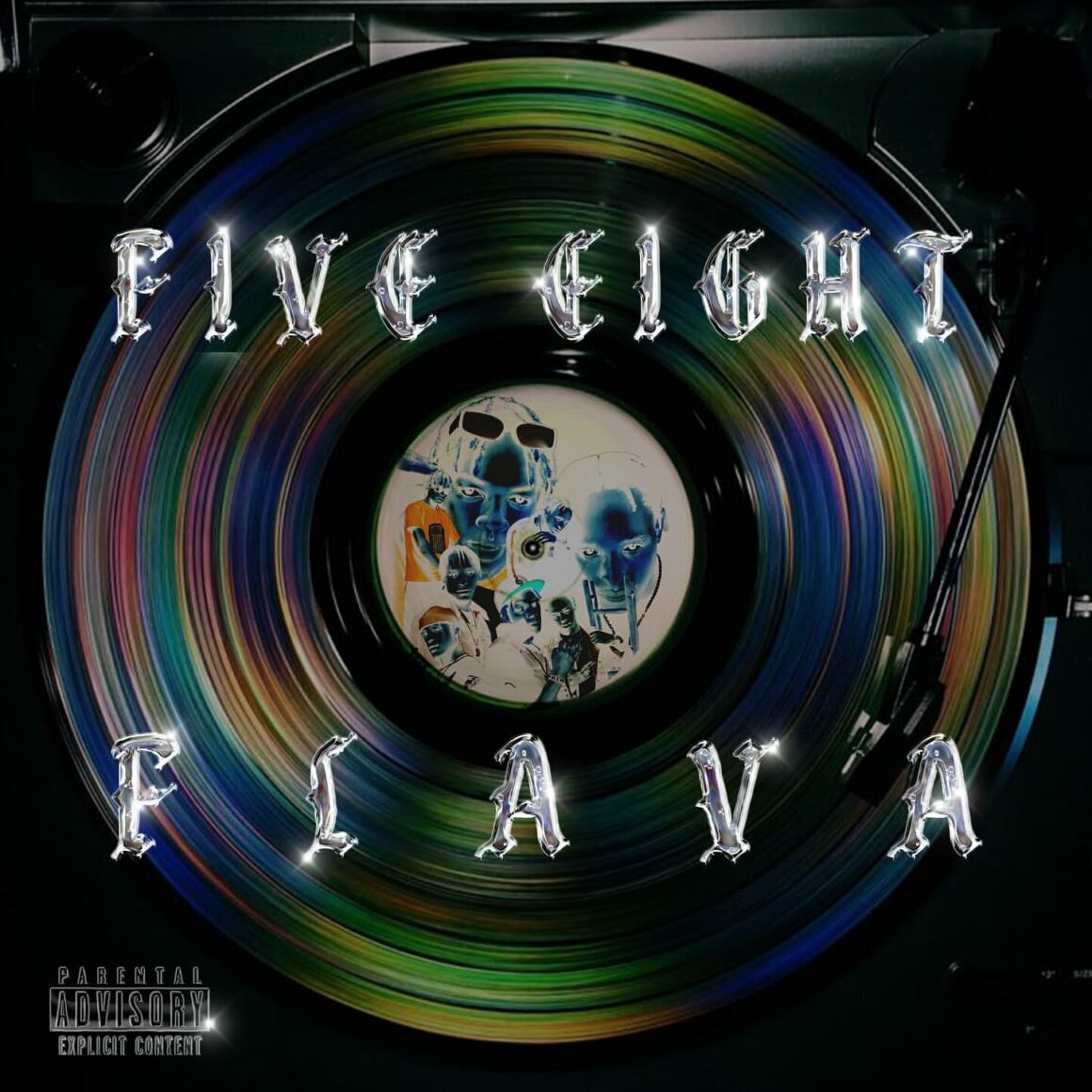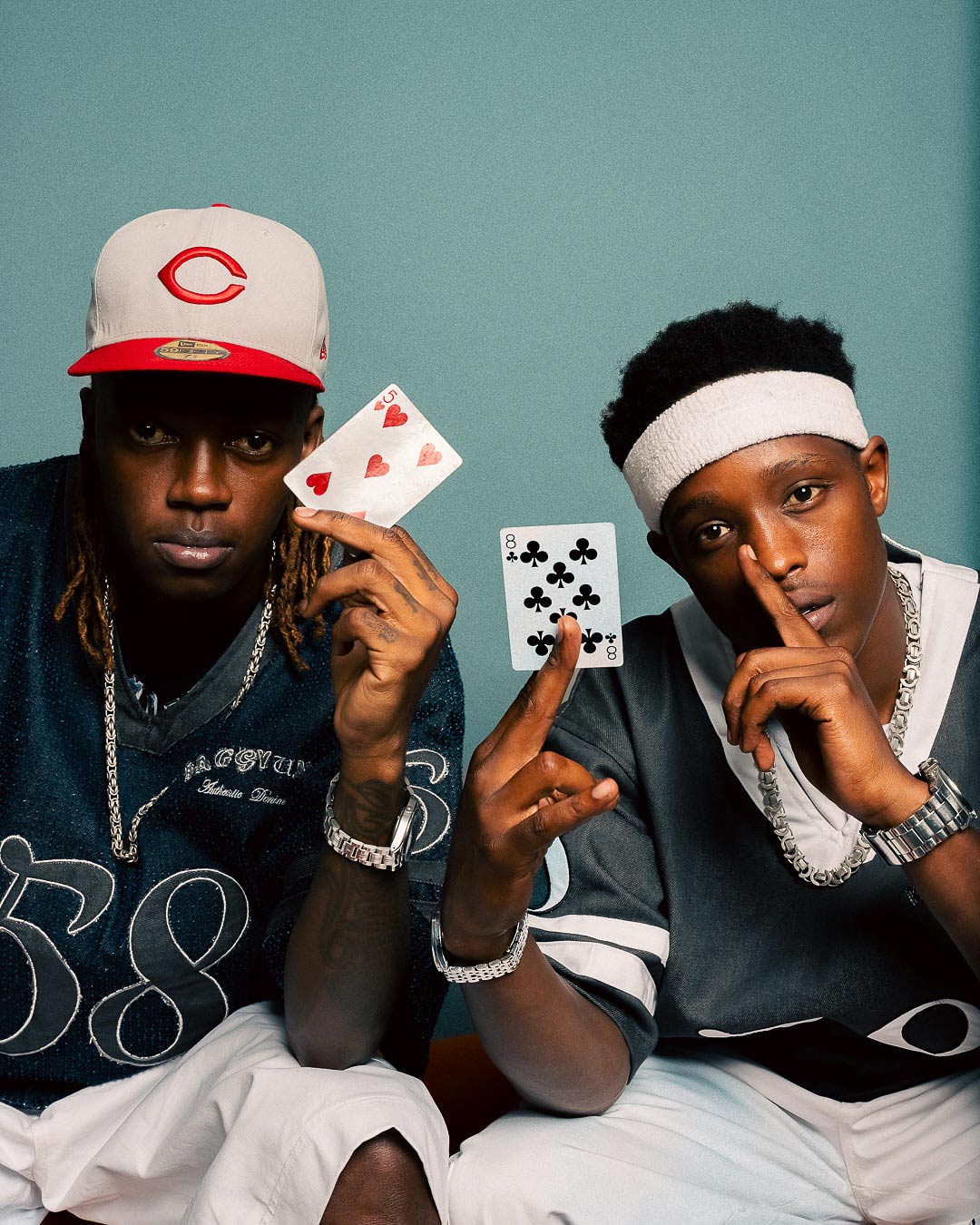My initial exposure to Buruklyn Boyz was entirely thanks to my co-worker from a few years ago, in the back office of a lifeless parastatal, where I occasionally hid and took naps in the afternoon (I am not proud of this). For a long time, the two of us were the only ones who worked here and hadn’t cracked thirty years, and this brought us close in an office full of faces that look gaunt and beat up by time. One day he handed me his phone and said nothing, just pointed at the screen, an indication that I should have a look at what was playing, and from that point, I have been following the Buruklyn Boyz’ careers with a keen interest.

Jump to 2025 and their latest album titled ‘58 Flava’ finds the duo attempting to appeal to the very diverse audiences that consume Kenyan music in an effort to prove themselves as crossover hit makers that can be marketable in night clubs, to brands and at festivals; an effort which I can only say the jury is still out on. While they have not yet completely abandoned the Covid-era UK Drill sound that propelled their careers, one can’t miss the Afrobeats and Amapiano-esque log drum, highlife characteristics influences that are all the rage in today’s music scene in Africa, creeping into their sonic explorations. With features from pop music icons like Nviiri The Storyteller, Lil Maina, Breeder LW, and even Bensoul, the album feels more like an experiment than a concrete body of work from the duo. 58 Flava is a project presented to the trend gods, at the loss of their core fanbase. There is an inherent risk to such an approach but the optimist in me went into the album thinking “What could possibly go wrong?” Simply put, quite a number of things have gone wrong. In 58 Flava, the Boyz offer a product that tries to redefine their identity, when compared to their previous works. The result is an easy to forget album.
While some of the old Buruklyn Boyz brujeria is felt in tracks such as “Rich or Broke” and “Clean Shit” a song like “Mashida”, which features repetitive lyrics and a drill beat that feels very dated doesn’t do them any favors. The aesthetics of the song feel more placed in 2021, and considering what year this is, that is not a good thing. It feels like a time capsule to an era where Pop Smoke was still alive and everyone was a Driller. Taking into account the album progression, what you find is stagnation. The Drill songs on the album highlight a lack of growth in between the first album and this one. There are one or two shining lights on the album that hint at how capable they can be at crafting gritty street anthems, but those become lost in a sea of predictable songs that you’ve definitely heard elsewhere before.

The second half of the album is where some interesting finds live. After the intense drill of the first ten tracks, the eleventh track, “Slow Motion” arrives as a palette cleanser and fares a bit better. The groovy 808s, combined with some upbeat keys, a danceable Gengetone melody, and a serviceable hook, amount to a solid attempt at a club banger. This is the first clear indication that the duo wants to exist outside of their current Hiphop sphere of influence and become actual crossover stars. This is the album’s highlight without a doubt, with the head-bobbing beat giving the album a much needed adrenaline shot that makes you want to dance. While “Slow Motion” shows what can happen when you take a risk, the next track shows what can go wrong. “Nimpee Nani” is an Amapiano track that features former Sol Generation artist Nviiri The Storyteller who barely gets out of first gear on this feature, with the boys actually outsinging him on this record. Wild.
While the previous track feels like an authentic exploration with Buruklyn Boyz colouring outside the lines, Nimpee Nani feels more like a poorly executed attempt at trend-hopping, possibly hoping to ride on the coattails of the current Amapiano craze. It’s even stranger when you consider that Amapiano was overshadowed by Afrohouse and 3-step in the past few years. This jump from something interesting to something that makes you press the ‘Next’ button punctuates the back half of the album because after “Nimpee Nani” comes “Magarita” an uptempo Dancehall-inspired track that features Lilmaina. For a moment here, the listener receives a fleeting shimmer of the potential that the Buruklyn Boyz can achieve, but it’s a double-edged sword because the track also amplifies the core flaw of this album. Tthere is too much filler in between the killers. With its shining melody and Dancehall vibes, “Magarita” is one of the few good reasons why you should listen to this album, and it’s a kind of disservice that it doesn’t come until much later in the album. There is a lot of cutting room material to sift through for you to find the really good music on this project. Tracks such as “Christmas” and “Confession” featuring Bensoul have the potential to be crossover hits but they come far too late in the album, at a point where the listener may have already checked out.
The features on the album help to spice up what is ultimately a disjointed record, with some of them providing the standout moments of the project. Albeezy shows how much growth he has achieved as an artist by dropping a memorable verse on “Usicheze na Biz” which also features veteran rapper Breeder LW. Lilmaina and Bensoul also add life to the album, especially with Bensoul crooning his heart out on “Confession”, a single that I expect to be a crossover hit sooner rather than later. One thing to note is that the collaborations in 58 Flava would have stood out more if the album was leaner and more critically thought out.
With only a few songs truly worth repeat listens on this entire LP, Buruklyn Boyz keep treading water here. When compared to its more entertaining predecessor, 58 Flava is ultimately a somewhat interesting experience. Once you brush past the thin veneer of novelty that punctuates its back half, the listener is met with a release that tells you Drill music is on the decline. The album is a poor execution that tries to merge Drill with other genres and create a musical chimera in an effort to maintain relevance. When at their best, the Buruklyn Boyz still demonstrate the potency that made them stand out, but such moments are fleeting here. What emerges instead is a creative sprawl caught between ambition and uncertainty, one that throws ideas in every direction, hoping that something, anything, sticks.
Hafare Segelan
Hafare Segelan is a music writer, critic, curator and content creator who is the brainchild behind two popular podcasts, Surviving Nairobi and Breaking Hertz. His work has been featured on platforms such as Spotify, Apple Podcasts, The BBC and many more. You can find him on Bluesky as @hafare.bsky.social




